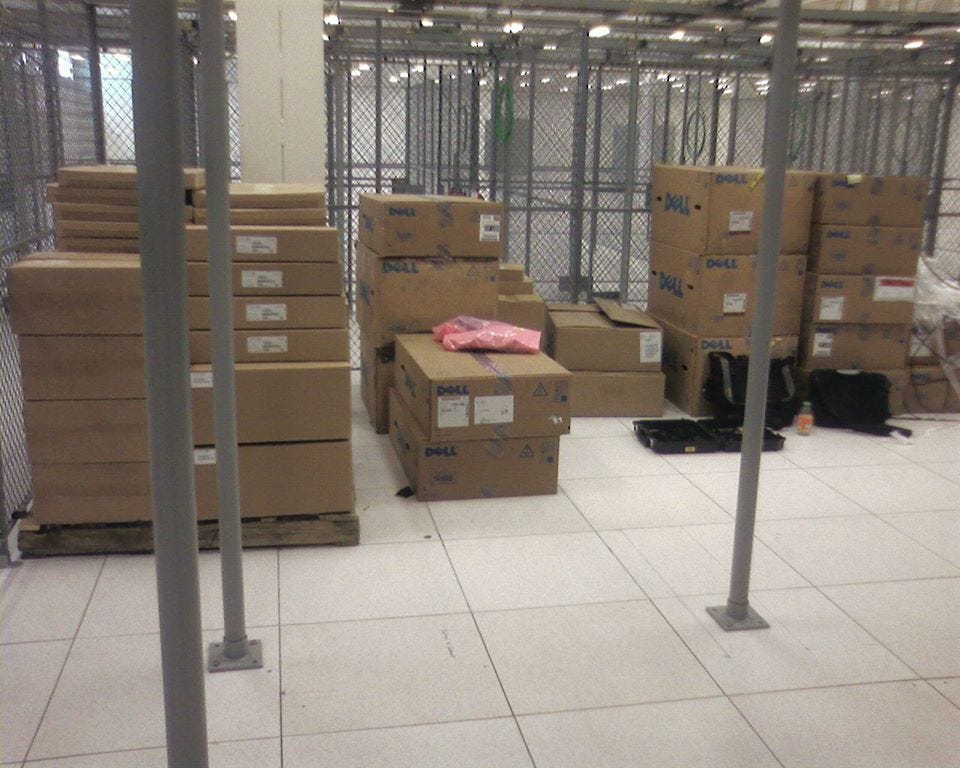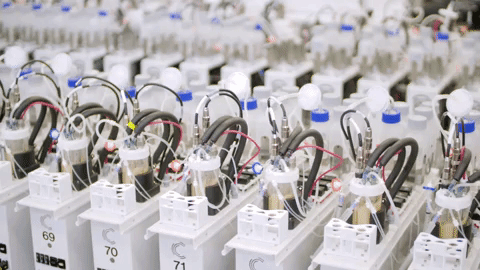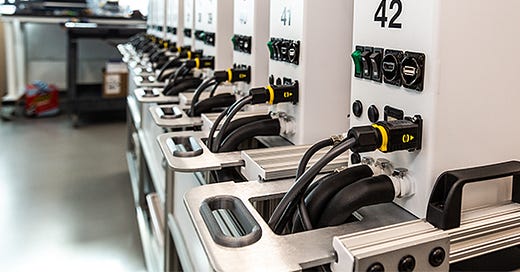The Three Questions: Culture Biosciences
Welcome to the next installment of The Three Questions - learn more about what T3Q is all about here.

What does Culture Biosciences do?
From the company:
Our vision is to make biomanufacturing a digital experience: we want running bioreactors to be as easy as running code in a data center. We’ve developed a digital biomanufacturing platform to enable scientists to run, monitor and analyze bioreactors faster and more conveniently than traditional approaches. We’ve built it from the ground up by integrating automated bioreactors, robotic sample handling, and cloud data monitoring and analysis.
If you aren’t sure what a bioreactor is, here is an overview from Wikipedia:
A bioreactor refers to any manufactured device or system that supports a biologically active environment. In one case, a bioreactor is a vessel in which a chemical process is carried out which involves organisms or biochemically active substances derived from such organisms. This process can either be aerobic or anaerobic… It may also refer to a device or system designed to grow cells or tissues in the context of cell culture. These devices are being developed for use in tissue engineering or biochemical/bioprocess engineering.
What do I like about Culture Biosciences?
One of the coolest products created over the past couple of decades is Amazon Web Services. A quick recap on why AWS is interesting: Amazon had a number of datacenters+know-how to power Amazon.com, and thus had economies of scale on pricing, redundancy, software to manage the servers fully built out. One day, Amazon productized all of these internal tools into an external service so that other companies could run their own code on AWS servers, thus creating even greater economies of scale on the Amazon as well as a value prop for other companies that became increasingly attractive vs building their own server infrastructure.
I remember what things were like before this was an option. My first startup pre-dated AWS, and so a decent percentage of my memories of being a founder during that era involved going to a datacenter in Santa Clara and racking servers. Founders these days have zero context about this sort of thing. While I am a bit nostalgic, cloud computing is clearly a net good thing for overall productivity and likelihood of success.

Above: an actual photo from my datacenter cage circa 2007
Culture Biosciences was a company I interviewed, funded and worked directly with during the YC W2018 batch. Culture is building Amazon Web Services for biotechnology, specifically for the bioreactor fermentation process. Any company that wants to scale out a process that would normally be done using in-house bioreactors can instead ship it off to Culture Biosciences to scale up. This helps the other company focus on whatever their actual business is, rather than spending a bunch of capital and valuable company cycles fiddling with fermentation processes.
The customers of Culture are also pretty interesting - in the same way startups like Dropbox grew hand-in-hand with AWS (and would seem nearly impossible to get going without AWS), emerging food companies like Clara Foods can grow alongside Culture. I have seen other “AWS for biotech” companies, and what I like most about Culture Biosciences specifically is that by specializing in one very specific type of process they have been able to get a strong early customer list and solve a constrained enough usecase to be able to get sufficient economies on their entire end-to-end service.
Why should people care about Culture Biosciences?
From a consumer perspective, “clean meat” companies like Impossible Foods have captured the imagination of people all around the world. I expect that we will see more emerging technologies using similar biomanufacturing processes, and Culture Biosciences has the opportunity to be an important piece of the infrastructure that makes this happen.
I remember hearing that in the 1990s, a large percentage of early stage venture capital dollars went from the bank accounts of the investors to the bank accounts of the startup and immediately into purchasing servers from Sun Microsystems and routers from Cisco. The fact that present day venture dollars are no longer primarily going into physical server infrastructure is a net good thing for software startups. Perhaps Culture Biosciences can be one of the building blocks to make the cost and financing risk of biomanufacting startups orders of magnitude lower. I hope so.




